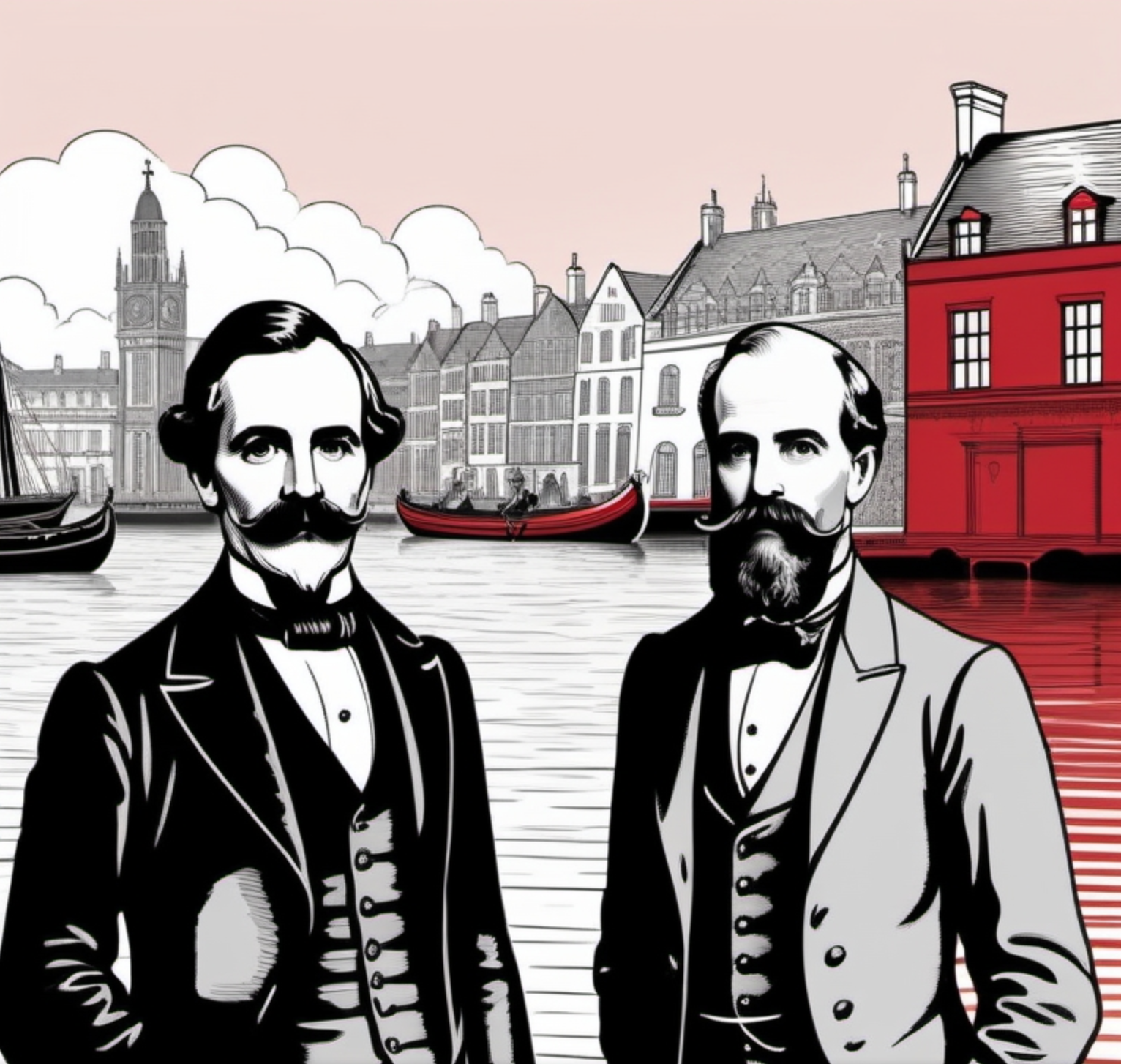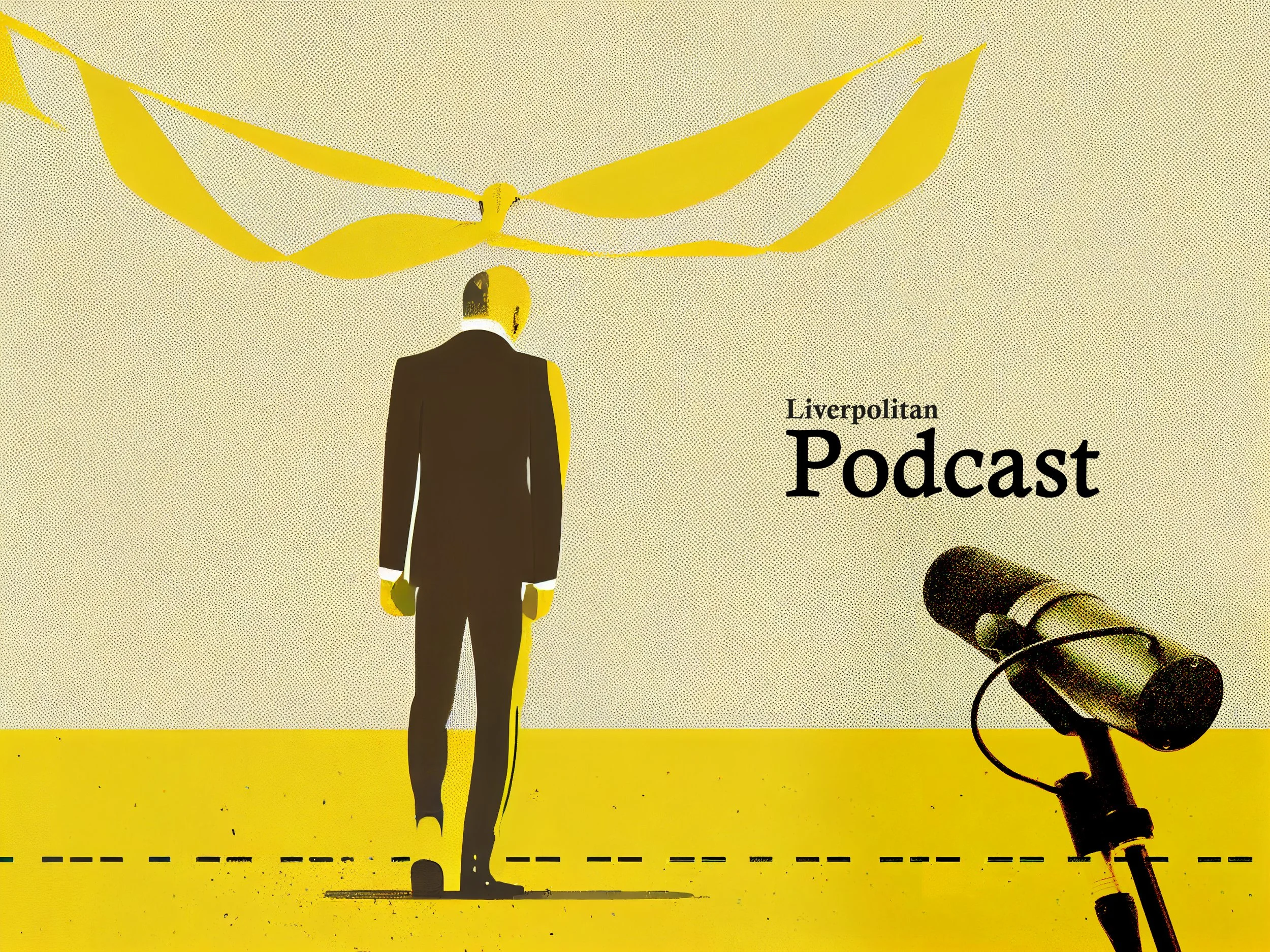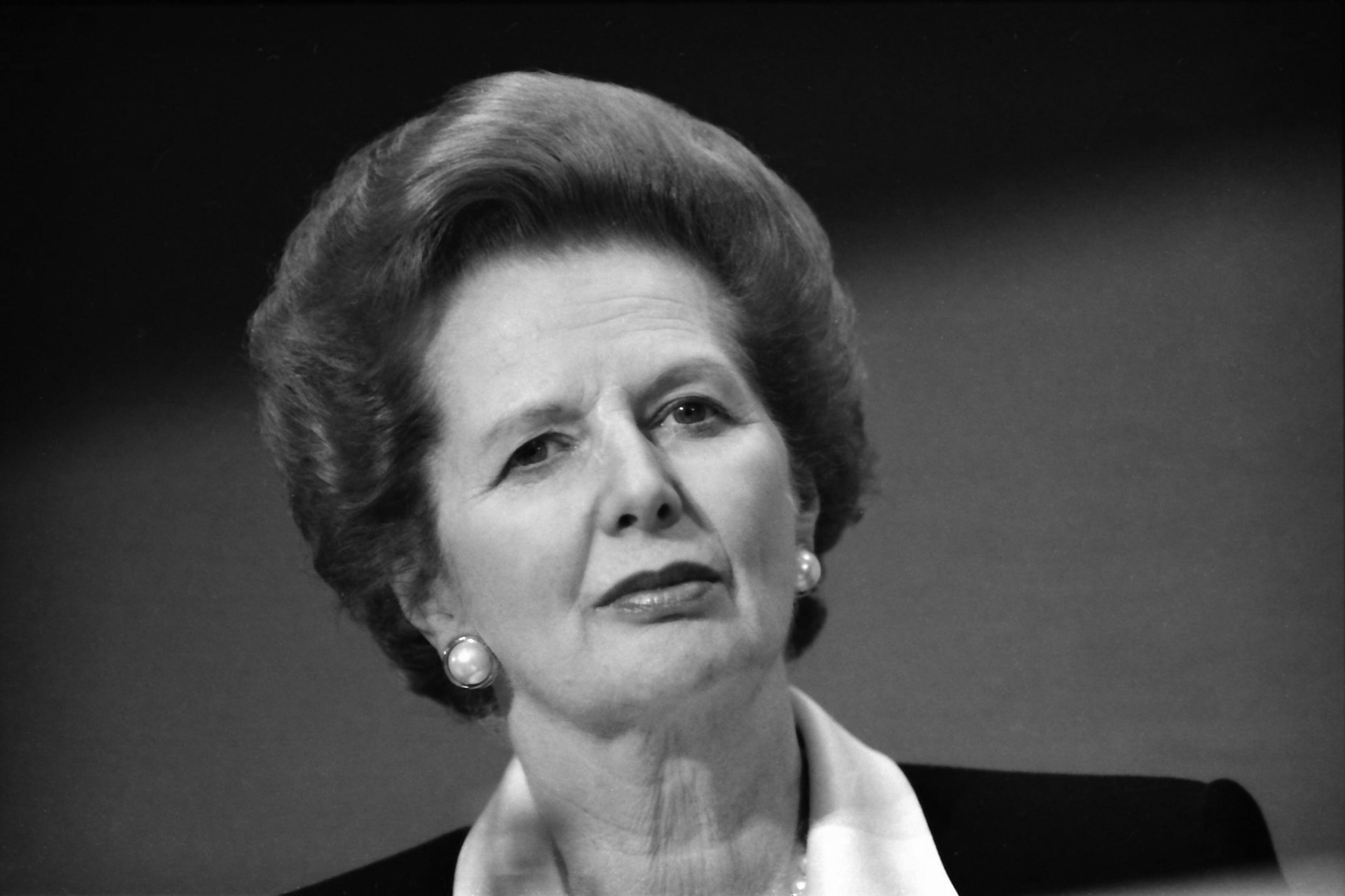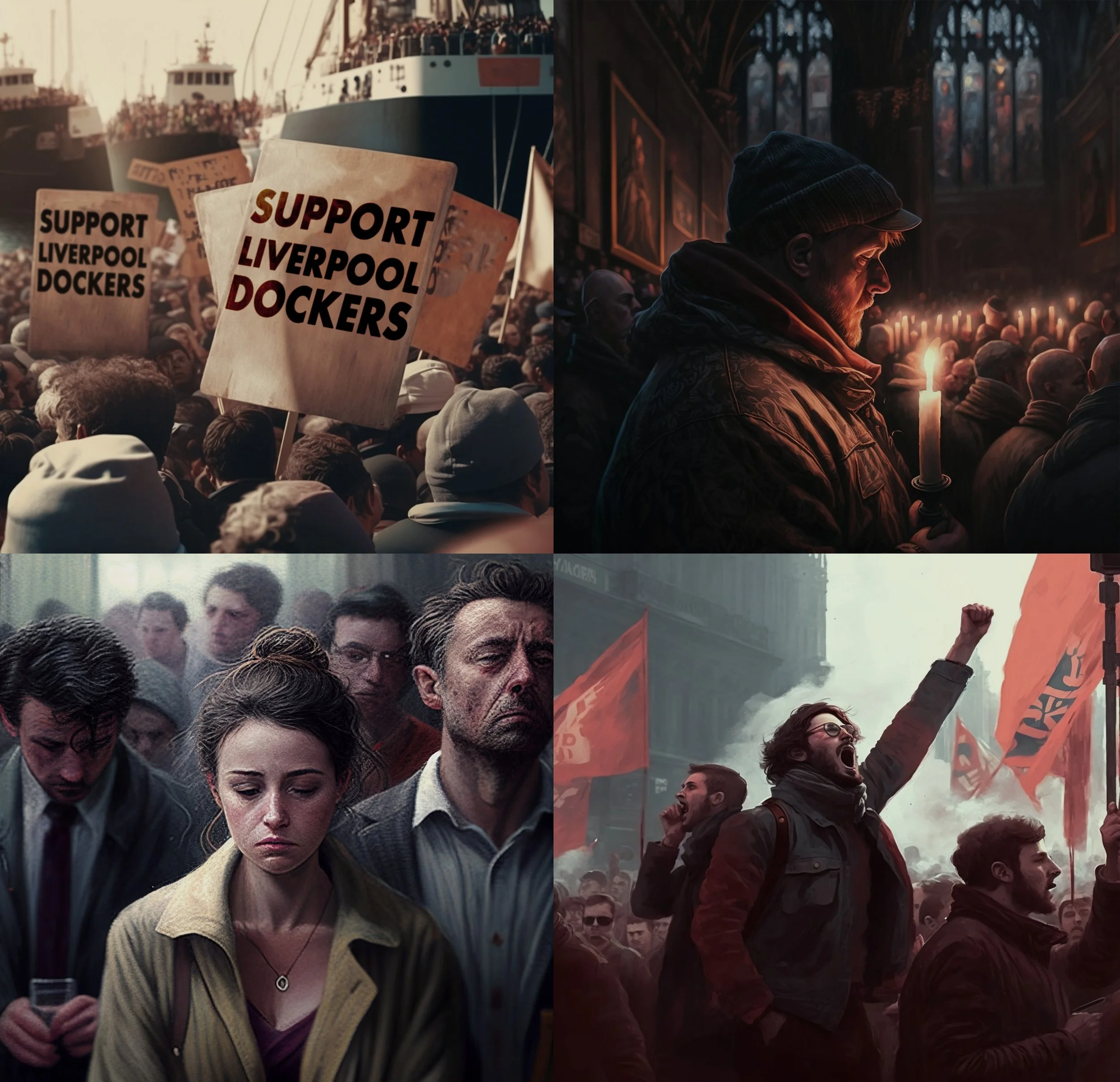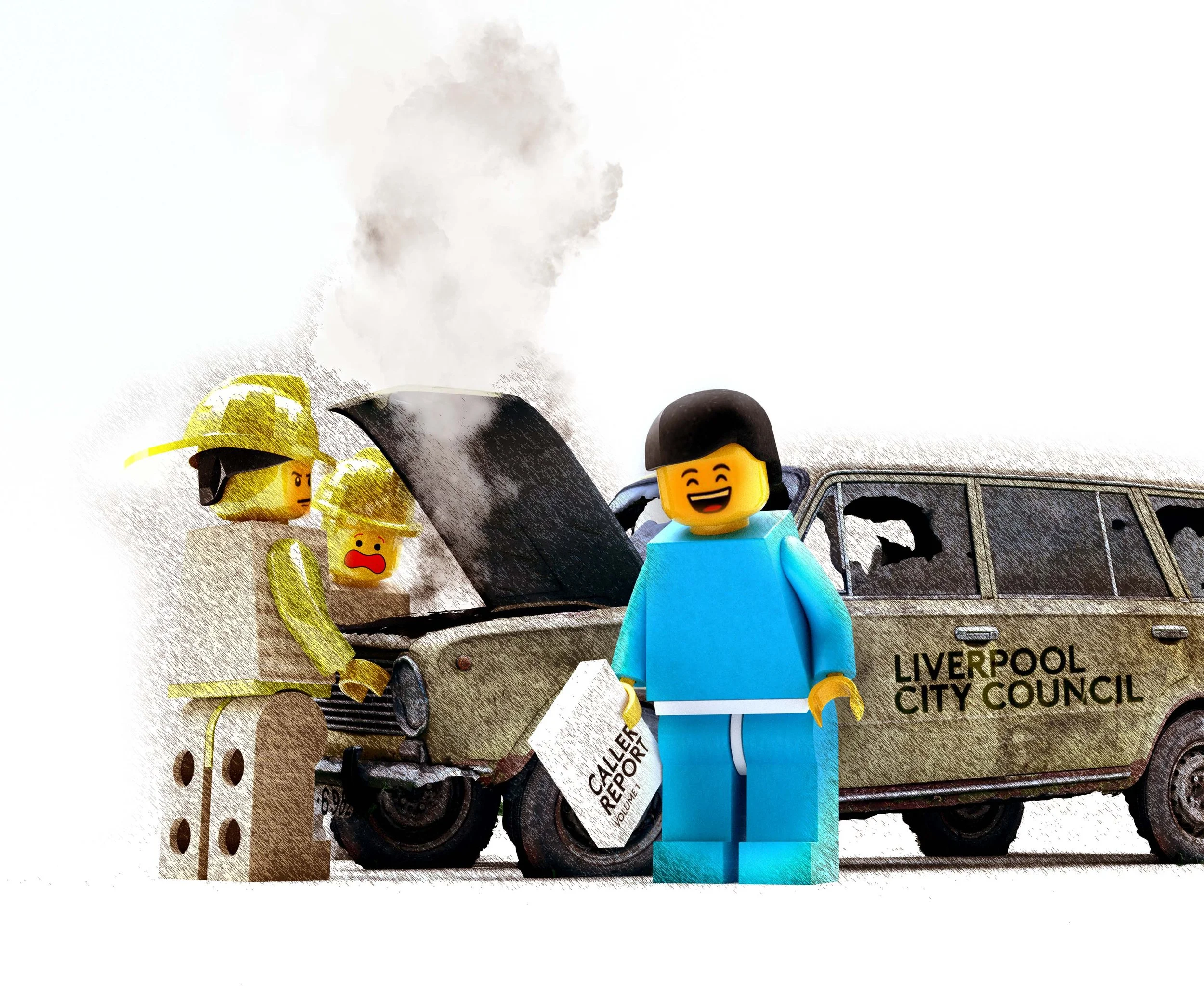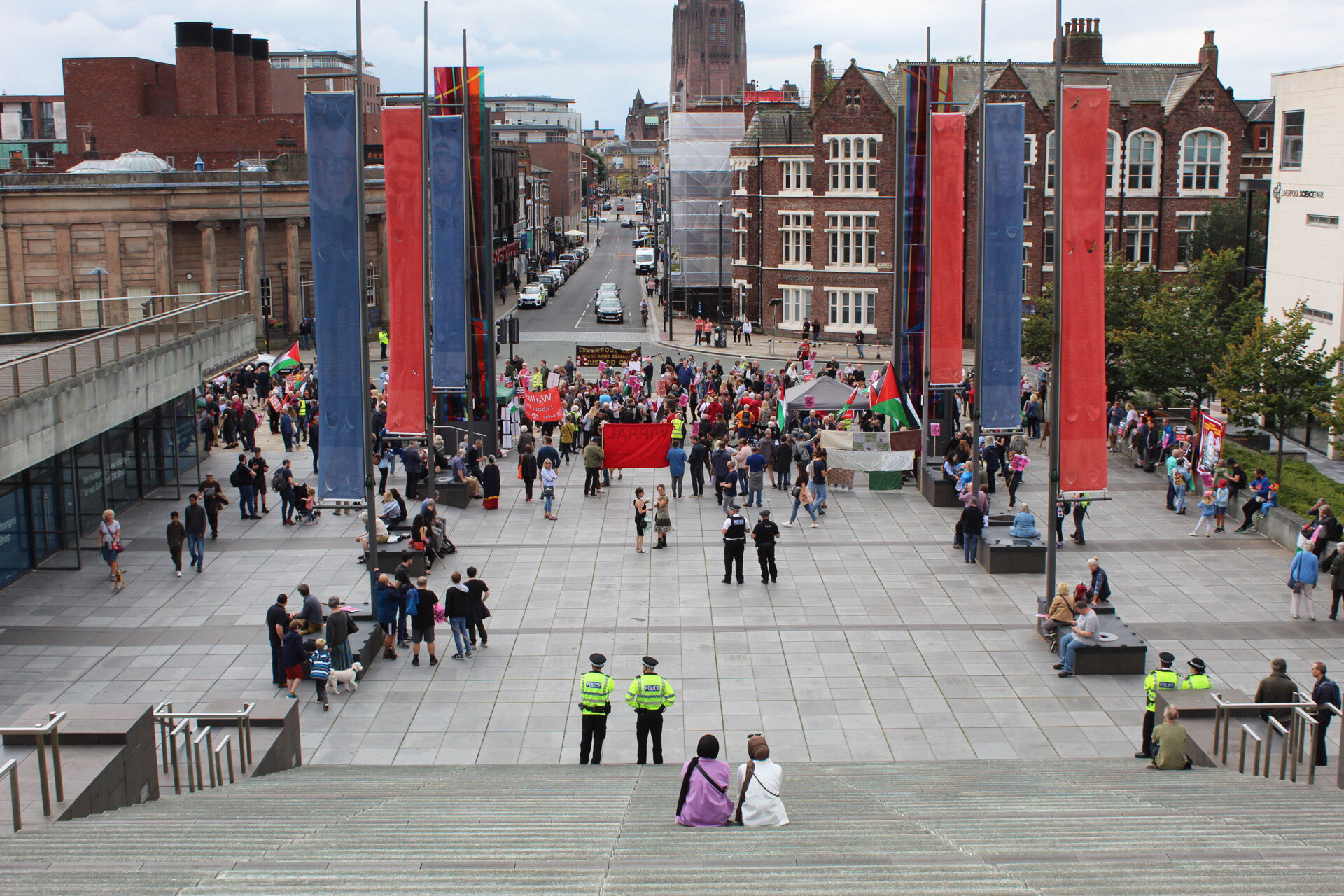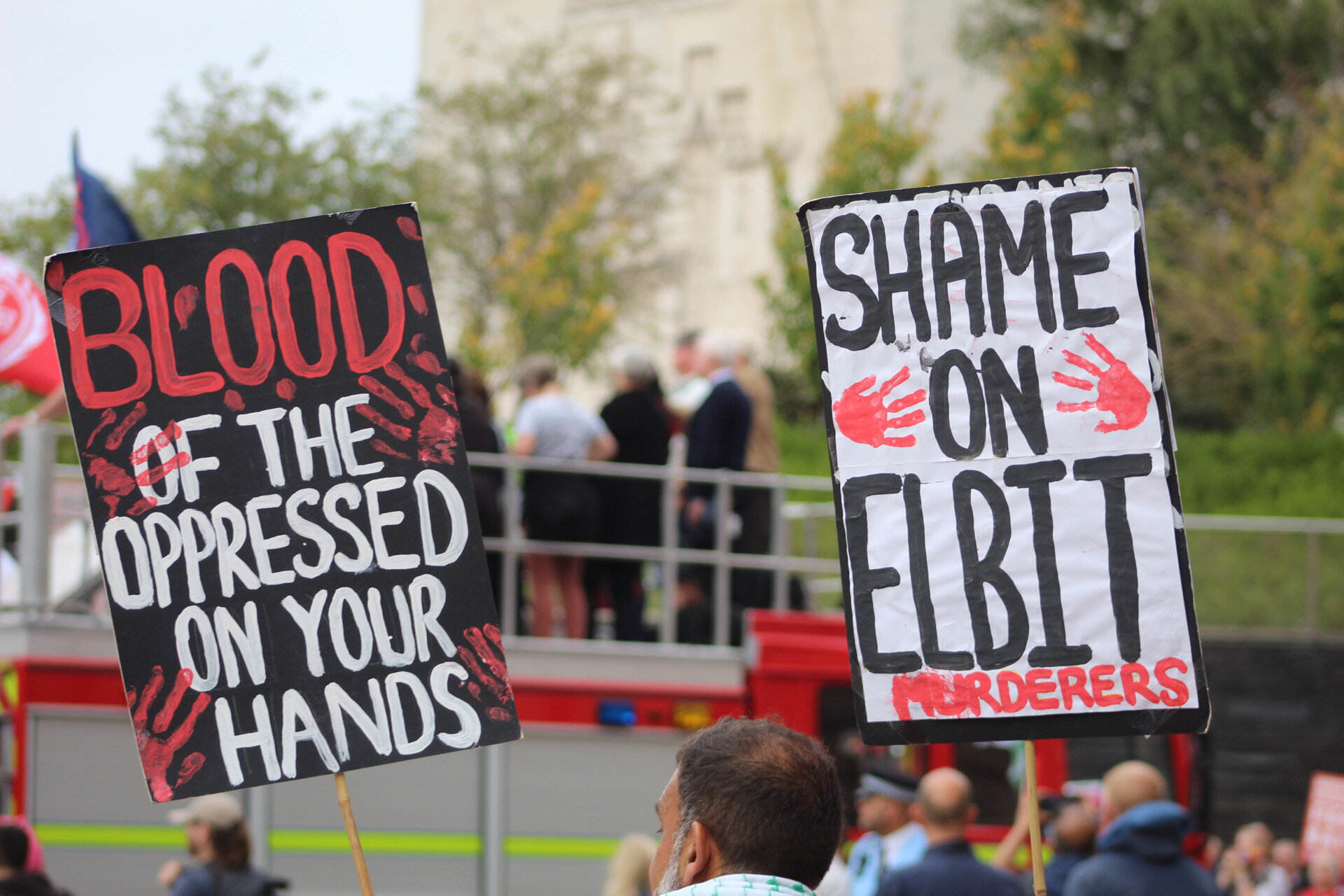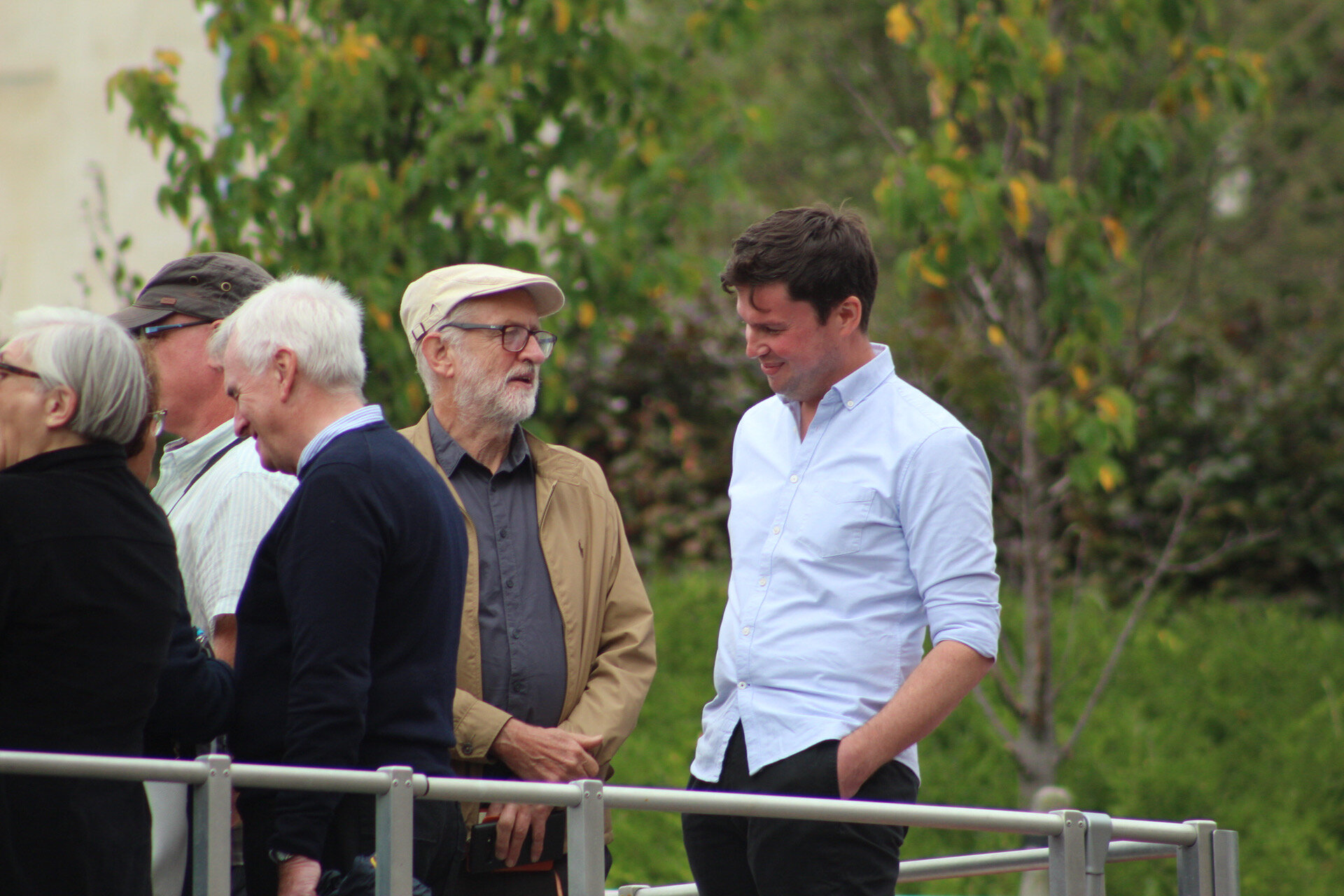Recent features
Liverpool Waters: Peel’s recipe for anytown, anywhere
The debates around development at Waterloo Dock and the expansion of John Lennon Airport were of totemic significance to the city of Liverpool revealing a schism between competing visions of our future. Progress and ambition pitted against tradition and conservation or so we are led to believe. But as Jon Egan argues, in the first of our new Debating Our Future series, there may be a third way.
Jon Egan
The debates around the Waterloo Dock project in Liverpool Waters and the expansion of Liverpool Airport caused heated debate amongst Liverpolitan’s contributors leaving plenty of room for disagreement. But one thing we all agreed on was their totemic importance to the city, revealing a schism between competing visions of our future. It’s a discussion the people of Liverpool need to have. What kind of place do we want to be? In this article, Jon Egan self-identifies with those sometimes christened as ‘nimbys’ and puts forward his idea for a city built around the cultivation of difference, individuality and beauty.
In the months ahead, we’ll explore these issues from other perspectives as part of a new ‘Debating Our Future’ series. If you would like to contribute to the discussion with your own vision, contact team@liverpolitan.co.uk
It's rare we embark on journeys in pursuit of the familiar, the ordinary or the humdrum. Travel, they say, is about broadening the mind, experiencing new sights, sounds, flavour and ambiences. The places we cherish and remember are those most imbued with a capacity to charm and surprise. So for places and cities aspiring to become destinations, cultivating and conserving what makes them different and original seems like a rewarding strategy. For Liverpool, a city that loudly proclaims its originality and inimitability, this should be a simple and unchallenging task.
When travel is neither practical or affordable, we always have the consolation of reading about the places we yearn to visit, experiencing their enchantment vicariously, though often with the added patina of poetic imagination.
Italo Calvino’s 1972 novel, Invisible Cities, is predicated on a series of imaginary conversations between Marco Polo and Kublai Khan. The famed traveller regales the Mongol Emperor with tales of the many fabulous cities he has visited, but true to the spirit of Calvino’s magical realism, these are not actual cities, nor even possible cities. They are extraordinary and fantastical creations - parables and paradoxes that explore what the book describes as the “exceptions, exclusions, incongruities and contradictions” that characterise and differentiate cities. Towards the end of the book, Marco Polo describes a city that heralds a disturbing vision, an incipient possibility foreshadowing the endpoint of globalisation.
“If on arriving at Trude I had not read the city’s name written in big letters, I would have thought I was landing at the same airport from which I had taken off. The suburbs they drove me through were no different to the others with the same little greenish and yellowish houses. Why come to Trude? I asked myself, and I already wanted to leave. “You can resume your flight whenever you like”, they said to me, “but you will arrive at another Trude, absolutely the same detail by detail. The world is covered by a sole Trude which does not begin and does not end. Only the name of the airport is different.”
The Waterloo Dock project in Liverpool Waters has totemic significance. For modernists it stands for ambition, progress and status. For the conservation lobby it was loaded with deep symbolism representing the destruction and the desecration of heritage.
So what, you may ask, does this have to do with Liverpool and its future? The answer lurks somewhere in the subtext of a recent planning controversy that divided commentators and communities, polemicists and politicians.
The project was the proposed residential development on the partially infilled Waterloo Dock in Peel’s Liverpool Waters. For modernists and urbanist thought leaders the project had totemic significance, standing as a shorthand statement of ambition, progress and status. For the conservation/heritage lobby the project was similarly loaded with deep symbolism representing the destruction and the desecration of heritage. The fractious debates and the absence of a shared narrative or vocabulary suggest a city without a clear or shared sense of self, insecure about its past and uncertain about its future.
The Romal Capital proposals for Waterloo Dock in Liverpool Waters were unanimously rejected by the Liverpool City Council Planning Committee on 18th Jan 2022. The developers have appealed and the plans will now go before the government’s Planning Inspectorate
So which side am I on? Typically perhaps for a Libra, both and neither. I have lamented the city’s lack of ambition, absence of vision and its inability to answer, or even ask itself, the fundamental question - what is Liverpool for? But I have also questioned the assertion implied, or explicitly asserted by some, that development is nearly always an intrinsic good. Indeed, in the context of the Waterloo Dock debate, I found myself aligned with alleged nimbys, and in spirited disagreement with many allies including the Editor and Founders of this publication.
Maybe the partial infilling of the dock and construction of an inoffensively bland apartment building was not the greatest ever crime against Liverpool’s heritage, but neither was this drably functional box of micro-apartments the most aesthetically or socially desirable addition to our (formerly) World Heritage waterfront. The debate and passions were evidently focused on bigger agendas and deeper sensibilities.
Fly-through video panorama of Waterloo Dock, Liverpool filmed in January 2022
Looming almost literally over the Waterloo Dock debate is a bigger picture, a grander vision and a development proposition that has insinuated itself into being a substitute for an actual future vision for our city. Liverpool Waters is now so ingrained into the city’s discourse and psychogeography that you could be forgiven for thinking that it actually exists. Peel’s near messianic promise to deliver Manhattan or Shanghai on the Mersey was proclaimed with a prophetic urgency in 2007, imbuing its curiously cinematic CGI’s with a hyperreal potency. When choosing between the actuality of World Heritage Site designation and the ephemeral fool’s gold promise of Liverpool Waters, we opted for the phantasy.
Liverpool Waters has both framed and constrained the debate about what sort of city we want to be, and what kind and quality of development we should be encouraging and embracing. Tall buildings have an obvious glamour. UK cities in particular seemed to be in frenzied competition to erect the tallest buildings, as if this, above all else, was a shortcut to status and significance.
Peel’s phalanx of waterfront skyscrapers was Liverpool’s trump card ready to be played (at some ceaselessly rolling future 30-year date), catapulting us ahead of our provincial rivals and reasserting our true global status. But is this what we want for Liverpool - a derivative identity, a replicant city? Trude on the Mersey?
Without for one second surrendering to nimbyism, we can recognise that imitation and simulation should not be our template. Echoing Calvino’s prescient warnings about globalisation, Desmond Fennell, the essayist and philosophical writer, foresaw similar tendencies at work in the early days of Ireland’s embrace of cosmopolitan modernity. In a beautifully evocative passage, in his book, State of The Nation, Fennell laments the loss of Dublin’s once rich and distinctive urban culture and soul. He mourns the curious and idiosyncratic details and delights that once defined and differentiated places.
Liverpool Waters is now so ingrained in the city’s discourse and psychogeography that you could be forgiven for thinking that it actually exists.
“If he is a Dubliner, walking amongst the offensive tower blocks, one who can cast his mind back 20 years, he will remember the vast Theatre Royal with its troupe of dancing girls, The Capitol and the old Metropole with their tearooms, Jammet restaurant and the back-bar, the incomparable Russell, the Dolphin, Bewley's and the Bailey as they used to be, the elegant grocers shops staffed by professionals of the trade, the specialist tobacconists with their priest-like attendants... It would be an exaggeration to say that consumerism destroyed or reduced the quality of everything: it improved the quality of tape-recorders, computers and inter-continental missiles and many other things. But it destroyed many of the amenities and much of the pleasure of cities, and, in a sense, the city as such."
The steady erosion of difference, character and defining originality is in danger of creating a sense of alienation and disinheritance as places converge and identities become eerily homogenous. We lose our bearings as familiar places lose their landmarks and legibility.
All too often progressives and modernisers have a tendency to disparage ‘conservatives’ whether they are rabid xenophobes or harmless nimbys, as people living in the past, fearful of change, trapped by prejudice and insecurity. But sometimes those who question change do have a point, even if it escapes rational or tangible articulation. Loss is something that is easier to feel than it is to explain.
So am I proposing a future constrained by conservation and suffocated by the cult of heritage? The simple answer is no, and if I may be excused for recycling New Labour nomenclature, I believe there is a third way. It’s an approach that can be radical, imaginative and ambitious without being imitative or simulatory. In a recent Guardian Op Ed, Simon Jenkins added his voice to the argument for diverse and differentiated strategies for regeneration.
“The Leaders of Manchester, Liverpool, Birmingham and Bristol can think of no other way of competing with London than by erecting garish towers of luxury flats in their central areas. They ignore the evidence that modern creative clusters - in design, marketing, the arts and entertainment - are drawn to historic neighbourhoods and old converted buildings… Northern cities regard their Victorian heritage as a liability not an asset.”
For Liverpool this should not mean a moratorium on tall buildings or intelligent contemporary design, but it should be a challenge to rethink and re-prioritise. We know from our experience that innovation and regeneration are about more than large-scale physical development and shiny glass towers. It’s about what happens in the cracks and gaps, the higgledy-piggledy neighbourhoods and Wabi sabi spaces where innovators and pioneers just get on with it. So let’s learn the lesson from the Baltic and formulate a planning framework for the Fabric District before its character and urban ambience are swamped by more identikit apartment blocks.
The decline of our port economy has bequeathed us an enviable array of empty buildings and fallow dockland areas ripe for reseeding as creative clusters. But areas like Ten Streets need more than protective planning frameworks, they need assertive interventions and clever curation if they are to fulfill their potential. Where are the big catalytic ideas that would stimulate investment and clustering in an area that may otherwise remain a squandered asset? If we see Ten Streets as the incubator for a world-class digital cluster, should it also be the home for Liverpool’s equivalent of Paris’ Ecole 42 - the digital “university without teachers” whose model and approach is now being embraced by cities ambitious to expand their technology and creative sectors.
And what about Ten Street’s brash and status-obsessed neighbour? It’s time to radically reappraise Liverpool Waters. As a benchmark for ambition it’s looking increasingly hackneyed, irrelevant and unrealistic. Even its most impassioned advocates are now beginning to question whether Peel is seriously committed to actualising this Fata Morgana version of Liverpool's future.
The debate about the northern docks should not be a battleground between nimbys and tall building fetishists. It should be about what the city needs and how the immense potential of vacant dockland can be harnessed to make Liverpool a different and more attractive city for its people, its visitors and investors. In San Francisco the development brief for its historic piers (former docks) proposes a mid-rise human scale built form aimed at preserving the setting of the city’s downtown cluster - an important part of its visual signature - but also to safeguard the city's view of the bay and sense of connection to its port history. Far from fostering mediocrity, the city has encouraged architectural excellence and experimentation with brilliantly innovative contributions from Thomas Heatherwick amongst others. Ironically, this was the approach favoured by UNESCO as the basis for the future evolution of our World Heritage Site. It’s also an approach that would have facilitated a more seamless integration with Ten Streets and wider North Liverpool.
Sometimes those who question change do have a point, even if it escapes rational or tangible articulation. Loss is something that is easier to feel than it is to explain.
Of course, we need to recognise that regeneration of the city centre alone will never suffice; Liverpool’s individual identity resides as much in its suburbs and neighbourhood high streets, its stunning parks and rich Georgian and Victorian legacy as it does in the more showpiece locations. Prefiguring Calvino's parable, Marxist critic Guy Debord and his Situationist collaborators warned that the redevelopment of Paris in the late 1950s signified a ruthless process of rationalisation, commercialisation and homogenisation where the authentic social life of cities was being replaced by spectacle - "all that was directly lived has become mere representation." Like their Surrealist forbears, the Situationists saw the city as a playground or dramatic stage promising limitless encounters with the extraordinary and the unexpected (le merveilleux quotidien).
It seems strangely apposite for a city seduced by the film-set flimsiness of Peel's promise, that we cherish our architectural heritage less for its intrinsic quality - its lived experience - than its capacity to mimic more significant and glamorous places. Sure, we can take pride in being the UK’s most filmed city, but is that it? Is our identity founded on an aptitude for imitation and representation?
Peel's penchant for visionary masterplans extends beyond the stalled blueprint for Liverpool Waters. Equally "ambitious and aspirational" are its plans to transform our humble provincial airport into a global hub with direct links to long haul destinations on every continent. Irrespective of the merits, feasibility or environmental impact of the plan, it is another ingenious attempt to stroke the ego of a city short on self-belief and uncertain about its place in the world.
Proper cities have proper airports, and the fact that Manchester has one, is less a matter of convenience than cause for a deep seated inferiority complex. But as latter day Marco Polo, Bill Bryson’s descriptions of Manchester as “an airport with a city attached” and “a huddle of glassy modern buildings and executive flats in the middle of a vast urban nowhere,” reveal, mere status symbols are not enough to make a city significant or memorable. In contrast, Bryson observes that “in Liverpool, you know you are some place.”
We need a regeneration prospectus based on the cultivation of difference and individuality, that cherishes what’s unique, irreplaceable and above all beautiful, but also fosters experimentation and originality. We want Liverpool to be the conspicuous and refreshing antidote to the nightmare of endless and interchangeable Trudes.
Being “some place” is not a bad guiding principle for a city seeking to nurture difference, and be a place that people want to come to, and are in no hurry to leave.
Jon Egan is a former electoral strategist for the Labour Party and has worked as a public affairs and policy consultant in Liverpool for over 30 years. He helped design the communication strategy for Liverpool’s Capital of Culture bid and advised the city on its post-2008 marketing strategy. He is an associate researcher with think tank, ResPublica.
Share this article
What do you think? Let us know.
Write a letter for our Short Reads section, join the debate via Twitter or Facebook or just drop us a line at team@liverpolitan.co.uk
“Better to break the law, than cause a war” - Arms Fair demonstrators in their own words
As political controversy erupts over October’s planned AOC Europe Electronic Warfare Convention, peace campaigners have hit the streets of Liverpool. As the Campaign Against The Arms Trade demonstrators marched from Princes Park to the city centre, Liverpolitan columnist, Paul Bryan, joined the throng, microphone in hand to hear what they had to say.
Paul Bryan
As political controversy erupts over October’s planned AOC Europe Electronic Warfare Convention, peace campaigners have hit the streets of Liverpool.
Determined to force the Council to cancel the event and prevent the ‘merchants of death’ from using the ACC Liverpool Exhibition Centre to sell their weapons and defence technologies, around 1000 demonstrators joined a rally on 11th September 2021 to pile on the pressure.
As the Campaign Against The Arms Trade demonstrators marched from Princes Park to the city centre, accompanied by Labour stalwarts Jeremy Corbyn and John McDonnell, Liverpolitan columnist Paul Bryan, joined the throng, microphone in hand to hear what they had to say.
Podcast
Broadcast, written and produced by Paul Bryan.
Photography by Daniel Watterson.
Music by GoodBMusic from Pixabay
All our podcasts can be enjoyed on Amazon Music and Spotify.
Share this article
WAH! What is it good for? Absolutely nothing
Are the Stop the Liverpool Arms Fair protests just another form of NIMBYism? Liverpolitan's Paul Bryan assesses whether ‘NOT IN MY LIVERPOOL’ is the real aspiration for many. Not in my backyard.
Paul Bryan
Are the Stop the Liverpool Arms Fair protests just a form of NIMBYISM?
If all it took to solve the world’s problems was a deep well of sincerity, then there can be no doubt that the latest demonstration in Liverpool against October’s planned AOC Europe 2021 Electronic Warfare Convention must be considered a stunning success.
Banners pleaded for ‘No more bloody wars’(is there any other kind?), ‘Nurses not Nukes’ (a reasonable-sounding request), and my personal favourite ‘Make scouse not war’. Although, it must be questioned whether vats of lamb stew, no matter how delicious, could form the basis of an effective defence strategy.
Of course, that sounds incredibly flippant and I don’t mean to be. There’s nothing wrong with wanting a better, kinder world. And anyone on the wrong end of a drone strike or a tyrannous regime could testify to the destructive power of modern armaments. That is, if they were still alive. But as I marched with and spoke to the demonstrators, I couldn’t help feeling a little confused. What is it exactly that they are asking for? That may seem like a stupid question. After all, the answer is found in the name of the campaign – Stop the Liverpool Arms Fair. And if I was in any more doubt the noisy protestor with the megaphone did her best to clear things up - the “What do we want? Stop the Arms Fair. When do we want it ? Now!” chant filled the air all day long. But to what end? If their pressure forced the ACC Liverpool Exhibition Centre to cancel the event, would one less piece of military hardware be sold in the world? Would the total weight of human misery be lightened in some way? If so, how?
Surely, the answer to those last questions would be “no” and “we’ve no idea”. Deep-down, I suspect the protestors know that too. To uncomfortably borrow an argument from the National Rifle Association for one moment, it’s people who kill people. The weapons are just the medium. And you can buy them in a lot of places. So if your actions won’t actually reduce violence in the places you protest to care about – Palestine, South Yemen, Syria – then what’s left? ‘NOT IN MY LIVERPOOL’ as one of the speakers shouted from the makeshift fire engine-come-stage, seemed to sum up the real limit of the aspirations for many. Not in my backyard.
The “What do we want? Stop the Arms Fair. When do we want it ? Now!” chant filled the air all day long. But to what end?
Which I suppose makes you wonder whether this is a futile cry in the Mersey wind – a posture to salve the conscience. Isn’t that the definition of virtue signalling?
In fairness, talking to people on the ground and listening to the speakers did reveal a whole poker hand of additional desires. Stopping arms sales to tyrannous regimes seemed to be a popular demand, while many (most) seemed to want to end all overseas arms sales full stop. I met a fair few who wanted to unilaterally dismantle the UKs armed forces and adopt a smile and hope strategy to international relations. Of course, given the profile of the crowd, plenty had their eyes on an even bigger prize. Nothing but the end of capitalism which they blame for all conflict, casually forgetting that the Romans and the Vikings were at it long before private enterprise became the de rigueur method of allocating society’s resources. I dare say the cave men were knocking each other on the head too.
My main sympathies are with those who argue for an end to foreign interventions. They hardly ever seem to make things better. Iraq, Syria, Libya and Afghanistan is quite the toll of failure. While the argument that it’s always about money and oil seem basic and vaguely ludicrous, surely the lesson from modern times is that you just can’t impose liberal values at the barrel of a gun in societies that don’t want them. More campaigning around that issue would, in my book at least, offer a far greater chance of easing the burden of war.
I met lots of wonderful people at the rally – union leaders, students, pensioners, a Sunday vicar, a veteran pilot of the Vietnam war, activists of different hues, and many more besides who had just come out for the day. But I didn’t for a minute think this was a typical cross-section of Liverpool society and I can honestly say, I have never met so many avowed pacificists in my life. Perhaps, this shouldn’t come as a total surprise. The Campaign Against The Arms Trade, which helped organise the event, has at least some of its origins in the Quaker movement – which has always taken the moral position that there is no justification for violence. Their’s is a utopian world where the lion lays down with the lamb. Where there is always room for talk. Where all it takes is an act of will to be better. “There is no place for war, only peace,” said an earnest Anya from Liverpool. And you can respect that view even if it feels counter to the sum weight of human history. She said there was no profit in war. Putting aside the obvious fact that there is, the forever outbreaks in conflict clearly show that someone benefits and it’s not always the obvious capitalist bogeymen.
While for many their pacifism seemed to be a point of idealistic principle, for others it was founded on personal experience, such as Anita from Wigan. I could really relate to her story. Her father served in the navy in WW2 and took part in the Battle of the Atlantic. He lost his youngest brother in the battle of Arnhem, while his two eldest brothers were captured and became Prisoners of War (P.O.W.) under the Japanese, which was generally not a pleasant experience. As a result, her father she said, “suffered from horrendous mental issues all his life and that is why I am anti-war.”
For Anita, being anti-war means laying down all of our nation’s weapons and refusing to fight. She wasn’t the only one who had this view. Far from it. Sadly, the road to hell is paved with good intentions. The answers to life’s questions are seldom as simple as taking a firm moral position, and laying yourself at the mercy of others can often have undesirable consequences. For every Gandhi espousing nonviolent protest, there are at least three murderous Pol Pots. Besides, in the 1980s, Labour’s flirtation with unilateral nuclear disarmament was electoral poison. Instinctively, most people are just comfortable with the idea that they need to be able to defend themselves. Barring the desperate, the zealots and those of pathological tendencies, nobody likes the idea of risking life and limb in bloody, brutal conflict. It really doesn’t have much to recommend it. But most of us know, that sometimes it’s inevitable. Sometimes you have to fight for what you believe in. Or be crushed. And I’d sooner go into a knife fight with a gun.
Labour’s flirtation with unilateral nuclear disarmament was electoral poison. Instinctively, most people are just comfortable with the idea that they need to be able to defend themselves.
While you could accuse the pacifists of naivety, they weren’t the only ones at the rally. In fact, they were almost certainly outweighed by the Left wing anti-war activists and their opposition to the arms fair appears to be far more tactical than moral, even if they wear all the accoutrements of offended outrage. In reality, they are seeking an altogether different type of utopia. The stars of the show included former Leader of the Labour Party, Jeremy Corbyn, Shadow Chancellor, John McDonnell, Labour MP Dan Carden, influential Liverpool Labour activist, Audrey White, and TV Actress, Maxine Peake. Unions such as the RMT were there too, and the Young Communist League and, of course, the Socialist Workers Party, who have more fronts than there are stars in the sky but whose banners are always recognisable by the use of that same give-away font. The list goes on – Black Lives Matter, CND, the Liverpool Friends of Palestine, and even a smattering of (although by no means all) local councillors. Liverpool Mayor, Joanne Anderson was notable by her absence.
Are these people pacifists? Well, some of them are certainly. The Left has a long tradition of being anti-war after all. But mostly they’re class warriors and their true beef is with the capitalist state. For them, the military is but an arm of the state and joining a campaign against an arms fair is an opportunity to turn the focus on imperialist warmongers, the profit motive and the racist ideologies that they believe underpin foreign adventurism. Hamstringing or completely eradicating the military and defence contractors is all part of the revolutionary playbook. It’s also a too-good-to-be-missed chance to prosecute their continuing and unhealthy obsession with Palestine. For them the campaign against the arms fair is but a proxy war, and that’s language they’d understand.
You can say what you want about Lenin, but at least he had some kind of plan. Granted it didn’t work out too well, but he did have the courage of his convictions. He was going to create a dictatorship of the proletariat, whatever it took. He didn’t hide his light under a bushel. But if Saturday was anything to go by, you can’t really say the same about the left wing demonstrators. Activist Audrey White may protest from the podium about the removing of the Labour Whip from the man who ‘still carries our (socialist) hopes and dreams’ (no I’m not talking about Keir Starmer), but the main focus of the rally was less about tackling the real causes of conflict and more about plugging into people’s innate sense of humanity. If Jeremy Corbyn was to be believed the weapons sold at the arms fair would be very targeted in the people they killed … “children in Gaza, children in Yemen, children in Somalia, children in Myannmar, children in so many places.” That really is some advanced technology. But is an exploitative pulling at heart strings any kind of argument?
Is this politics without the politics? Or is it lowest common denominator stuff, fetishizing on the weapons. Forget the context, feel the hurt.
One speaker, Haneen Awaad, 24 was introduced as a Palestinian Scouser – which feels like some kind of genetic super-breed of the oppressed
Corbyn was by no means the only one playing that game. One speaker, Haneen Awaad, 24 was introduced as a Palestinian Scouser – which feels like some kind of genetic super-breed of the oppressed. While describing herself as ‘born and bred in Liverpool’ she went on to say that all she’d ever known was ‘rockets, bombs, planes, tanks’. While the lives of Haneen’s grandparents have undoubtedly been touched by conflict (true of almost everyone of that generation in Europe) it seems unlikely that Haneen herself has had cause to fear military attacks in the streets of Anfield. Another speaker, Sarah Ashaika – a Syrian poet from Liverpool, who it was reported, has never been to Syria, regaled the audience with a poem that consisted of the names of dead Syrian children. Their involvement pointed to something hollow and performative about the rally in which people with no experience of the effects of weaponry gave testimony to the horrors of war.
Haneen excelled herself though. After telling the crowd how appalled she was at these ‘merchants of death’ visiting Liverpool, she then went on to evoke tropes about the Hillsborough disaster and the long-dead Prime Minister, Margaret Thatcher, to wrap up the (seemingly whole city’s) opposition to the arms fair as a typical scouse fight-back against injustice - which shows the way the region’s politicos continue to weave their own narrative of David and Goliath to forge a socially cohering, but ultimately toxic brand of localist exceptionalism. But more than that. Laying claim to Hillsborough to support your political campaign just felt ugly. But we shouldn’t be surprised – the idea that Liverpool is a continually oppressed city with a single socialist view of the world is the line we hear over and over again.
It was notable how often demonstrators talked in the royal ‘we’ to describe what they felt Liverpool did and didn’t want. Many seemed convinced they spoke for the wider community, one which was presented as uniformly ‘socialist’. When I asked Michael who lived in Liverpool city centre how he could be so sure his views were representative of the wider region, he seemed a little irked – “I know the temperature of the city,” he replied. Maybe. But there were, at a very generous count, 1000 people at the demo (most probably less) and it had been widely advertised. Maybe the Council should actually consult with the people before presuming on their opinions and bowing to the vocal outpourings of pressure groups. The local media don’t help in this regard, tending to treat the campaign with kid-gloves. Google it and try and find anything critical. It’s almost as if they are afraid that raising a sceptical eyebrow might invoke a storm upon their own heads.
The strongest argument I heard at the rally was the one that pushed beyond a mere repulsion at bloodshed. It goes along the lines that, we the UK, should not sell or assist the sale of arms to tyrannous regimes with a history of using those weapons on civilians. Saudi Arabia is in the dock for its military raids in the poverty stricken land of South Yemen. Israel attracts considerable ire for the overwhelming force it meets out to the Palestinians (although of course, many go much further than this in their criticism of the Israeli state), and there are other regions of concern too from the Turks treatment of the Kurds to the cruel power of the Syrian government in its suppression of internal opponents. What are we to make of this?
I’m a little torn. I am no friend of the anti-democratic Saudis and I find the concrete wall that separates communities in Israel to be offensive to every humanitarian instinct I can muster. There surely has to be some limits on who we sell weapons to – some minimum standards. But it’s most probably quite a complex calculation. Saudi Arabia is the regional counter weight to Iran, and Iran are a big part of the reason there is war in Yemen. So pick your poison. One thing I would say, is that for anti-imperialists, there seems to be a whiff of old school imperial attitudes in the presumption that it is up to the UK to determine who can and cannot be trusted with the weapons that we are content to arm ourselves with.
Regardless, countries like Turkey and Saudi Arabia are investing heavily in their own indigenous armaments manufacturing capabilities as Turkey’s development of bomber drones proves. And if not us, then the Russians, Chinese, Americans, French and more will only be happy to step in. Talk of the moral obligations of the ‘West’ is starting to sound increasingly redundant.
One thing I heard over and over again was the view that war and violence had no place in a socialist city. Yet anybody with a passing knowledge of the 20th century will know that socialism does not have a clean bill of health when it comes to oppressive violence. It has been estimated that up to 20 million Russian citizens died under Stalin’s Soviet reign of terror, possibly even more under the auspices of red China’s tyrannical Mau. Today, modern China has come under fierce criticism for forcing over a million Uyghur Muslims into euphemistically named ‘retraining’ camps. Of course, there would be a long queue of people lining up to absolve these societies as ‘not socialist’. But you can draw a line between the foundations of these states and the horrors that followed. Can we really afford to be so blasé and one-eyed about these crimes when we wrap ourselves in anti-war banners?
Besides, as I raised with a number of protestors in my interviews with them, Liverpool as a city does have a military history. Not only was it the headquarters for the crucial WW2 Battle of the Atlantic in which electronic radar technologies played a crucial role; not only does it provide significant numbers of soldiers, sailors and airmen to the British Armed Forces, but its shipyards at Cammell Lairds to this day service and manufacture navy vessels under Ministry of Defence contracts – something many locals seem to take great pride in. When the 65,000 tonne aircraft carrier, HMS Prince of Wales docked in Liverpool in February 2020, there was no shortage of visitors scrambling for tickets for the right to board. The truth is, Socialist Liverpool has a nuanced relationship with the military, but many of the anti-war demonstrators seemed keen to airbrush that fact.
I wonder what you think about all of this if you work in the local defence supply chain? According to Ministry of Defence data for 2019/20, the MOD spent £2.2bn in North West England supporting 15,000 direct jobs and many more indirectly across the whole industry. These are not small numbers and they provide some interesting context to a conversation I had at the demonstration with Dave Walsh, the President of the Liverpool Trades Council and Daren Ireland, an RMT Union Regional Organiser. They admitted that their organisations have been burning the midnight oil for years trying to figure out what to do about the thorny issue of those union members working in the defence industry. How could they square the circle of supporting their members while fighting militarism? Dave admitted that they’d finally arrived at a position. They recognised these were skilled jobs and recommended that those skills be turned away from defence to ‘socially useful’ sectors such as healthcare or for fighting climate change. I wonder what it’s like to be represented by a union that is ashamed of your existence?
Idealism can be like a drug. It makes you feel good – you’re a good person. You’re on the right side of history. But all the while history is going on about its business without you because you’ve stopped engaging with the world as is, in favour of that quick hit of righteousness. I don’t doubt that it would feel good to kick the Electronic Arms Fair out of Liverpool. But it would be a victory of dubious benefits in favour of principled naivety and leftist entryism. Not one less weapon would be sold in this world. But at least the protesters would be able to say, ‘Not in my Liverpool’. Not in my back yard.
~
The Stop The Liverpool Arms Fair demonstration took place on Saturday 11th September 2021. To hear what the protesters had to say in their own words, listen to this special podcast, Better To Break The Law Than Cause A War.
Paul Bryan is the Editor and Co-Founder of Liverpolitan. He is also a freelance content writer, script editor, communications strategist and creative coach.



